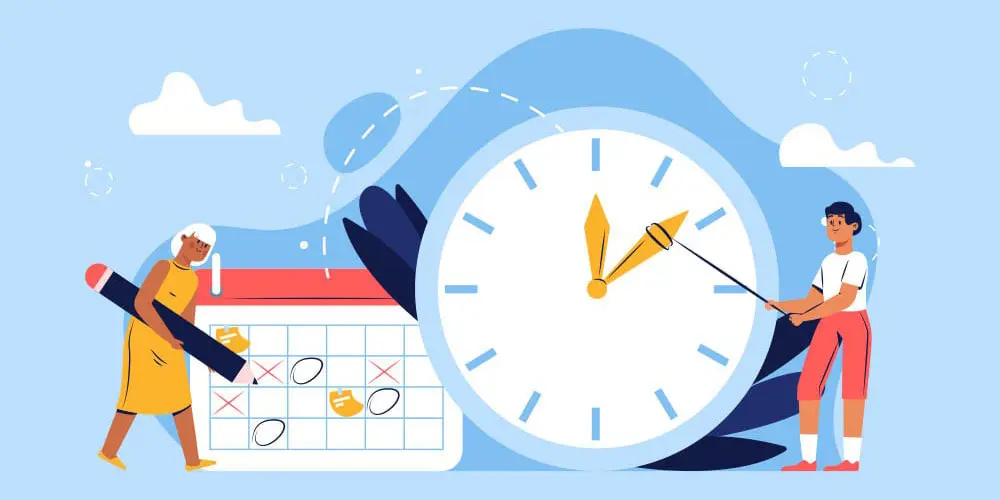
Latest Updates on SBA 8(a) Certification: How It Benefits Small Businesses?
As a small business entrepreneur, you might be facing social and economic disadvantages and seeking to obtain government contracting opportunity, right? Well, in that scenario, the SBA 8a certification program could be the right choice for you.
The 8a certification, offered by the U.S. Small Business Administration (SBA), aims to assist small business owners who encounter racial or cultural bias by granting them access to contracting opportunities. Therefore, acquiring this certification can enhance your chances of achieving success in your professional pursuits.
So, in this article, we will walk through the complete process of obtaining an SBA 8(a) certification to empower small businesses. We also define the requirements for individuals considered “socially and economically disadvantaged” for the purpose of 8(a) federal certification.
Continue reading this article to explore further details.

What is SBA 8(a) Certification?
When a business possesses 8(a) certification, it signifies their participation in the 8(a) Business Development Program. To understand what 8(a) certification entails, we can turn to the US Small Business Administration.
The 8(a) Business Development Program aligns with the federal government’s objective of allocating over 5% of contract funds to small, disadvantaged businesses, as per the SBA’s guidelines.
This program offers federal assistance to small businesses owned and operated by dually disadvantaged US citizens. There are numerous 8a certification benefits for people who are both socially and economically disadvantaged and own/ control 51% of the company.
Thousands of business owners who are just getting started are able to access government contracts, through 8a certification. Therefore, the 8a Business Development Program is an opportunity for economically and socially disadvantaged small business owners. It gives many people access to “the economic mainstream of American Society”, notes the Federal Minority Business Development Agency (MDBA).
Businesses with 8a certification receive counselling, procurement guidance, mentorship, surety bonding, training and financial assistance. Additionally, the program offers other forms of technical and management support.
The SBA 8(a) certification program is specially designed to assist small businesses facing social and economic disadvantages in qualifying for federal contracts and receiving additional support. This program spans a duration of nine years.
What are the Key Benefits of SBA 8(a) Program?
The 8(a) certification program is an essential resource specially designed to support small business owners who face social and economic disadvantages and have been engaged in business operations for a minimum of two years or more. It provides unique and highly valuable business assistance that significantly enhances your chances of securing federal contracts.
However, there are some additional benefits associated with 8a certification. Even if your company is not yet prepared to engage in contracts with the federal government, the SBA 8(a) program can assist you in reaching that stage.
Access to Competitive Federal Contracts:
In order to create a fair environment for small businesses, the government limits the competition for certain contracts. These contracts are referred as “Small Business Set-Asides”, which enables small business firms to compete and secure federal government contracts.
Each year, the federal government aims to allocate a minimum of 5% of federal contracts to small businesses facing disadvantages. Therefore, obtaining 8a certification is the official wat to designate your business as part of this eligible 5%. Through this program, you have the opportunity to access both sole-source and set-aside government contracts.
Sole sourcing constitutes approximately half of the annual 8(a) sales, amounting to $16 billion. When the owner of an 8(a) certified firm meets with the federal procurement officer, they negotiate project specifies and pricing. As long as the 8(a) firm is not found to be more than 10% above the market rate, the federal procurement officer can directly award the contract to the 8(a) firm. In many cases, 8(a) firms in their third year and beyond no longer need to respond to bids because the relationships they have established result in enough sole-source contracts to keep them busy. The limits for sole-sourcing are set at $4 million for goods and services and $6.5 million for manufacturing.
Business Development Assistance:
Throughout the nine-year program duration, you will benefit from personalized business development assistance provided by dedicated specialists who are committed to supporting your business opportunities. These business specialists are focused on fostering the growth of your firm and helping you achieve your business objectives.
SBA Mentor-Protégé Program:
As a small business owner with 8a certification, you have the opportunity to seek mentorship from experienced firms through the SBA’s Mentor-Protégé Program. By forming partnerships with other entities, you can pursue larger contracts for your certified 8(a) businesses.
This collaboration is commonly referred to as a mentor-protégé arrangement or joint venture, and it frequently involves partnering with large federal prime contractors. Through these partnerships, 8(a) certified firms can gain valuable insights into how the government operates, ultimately expanding their knowledge and expertise in government-related work.
Connect with Procurement Expert:
By utilizing the SBA 8(a) program, you have the opportunity to engage with procurement and compliance professionals who specialize in federal procurement and compliance. These experts can provide valuable guidance and support in ensuring business growth, finance and meeting the necessary regulations for government contracting.
Connect with Large Businesses:
Obtaining SBA 8a certification enables you to benefit from mentorship provided by established firms through the SBA Mentor-Protégé program. Additionally, you have the opportunity to explore joint ventures with your mentors, allowing you to enhance your capabilities and collaborate effectively to compete for government contracts.
Competition Limitation:
The 8(a) certification program plays a crucial role in narrowing down the pool of competitors for federal contract bids. Out of approximately 24 million businesses in the United States, only around 6,500 have successfully completed the process to obtain 8(a) certification. A designated 5% of all federal spending, which exceeds $34 billion per year, is reserved for 8(a) certified firms. This translates to more than $4 million in federal spending annually for each 8(a) firm.
Streamlining Federal Bureaucracy:
The SBA serves as an intermediary to assist 8(a) firms in securing federal contracts, effectively reducing the time required for them to achieve their initial federal sale. In most cases, the SBA aids 8(a) firms by issuing introduction letters that facilitate their initial contact with the targeted market.
Enhanced Effectiveness of GSA Schedule:
Obtaining 8a certification significantly enhances the effectiveness of a GSA Schedule. When federal procurement officers visit the GSA Advantage web portal for GSA procurement, they prioritize seeking out 8(a) firms. This grants 8(a) firms an estimated 300% advantage over their non-8(a) peers on the GSA Schedule.
Advantageous for FEMA Contracts:
Having 8a certification provides substantial benefits, especially when it comes to securing FEMA (Foreign Exchange Management Contract) contracts, particularly in the event of national disasters. 8a certified firms are better equipped administratively to be awarded and assist victims when such disasters occur. Over the past 10 years, there have been 560 designated presidential disasters, with an annual expenditure of $11.5 billion, a significant portion of which has been allocated to 8(a) certified business firms.

What are the Eligibility Requirements for 8(a) Certification?
Here we provide a concise checklist to help determine your eligibility for 8(a)certification:
- Meet the SBA’s size standards and qualify as a small business according to the federal definition.
- Have never previously participated in the 8(a) Minority Owned Business Program.
- Possess ownership and control of at least 51% by economically and socially disadvantaged individuals who:
- Maintain a professional asset below $6,00,000
- Possess a personal net-worth under $750,000
- Demonstrate adjusted gross income less than $3,50,00
- Belong to specific ethnic backgrounds such as African-American, Native American, Hispanic American, Asian Pacific American, or Subcontinent Asian American. Alternatively, if not from these backgrounds, provide evidence of social disadvantage based in gender, disability, ethnic origin, race, long-term residence outside mainstream society or other relevant factors.
- Demonstrate potential for business success, typically by having operated for at least 2 years.
- Exhibit strong character and the ability to fulfil contractual obligations.
How to Apply for SBA’s 8(a) Certification Program?
The SBA’s 8(a) certification program is a government initiative administered by the Small Business Administration or SBA with the aim of supporting small businesses that face social and economic disadvantages through the provision of government contracts. The SBA actively engages in implementing measures and taking decisive actions to assist these small business firms in starting, growing, expanding or recovering their operations with confidence.
To apply for 8(a) SBA certification, it is important to follow the specific procedures outlined below:
- Start the process by registering with the System for Award Management or SAM. This registration is necessary to access certify.sba.gov. Once you have a SAM account, your business will be officially registered, and you will obtain an EIN or TIN for tax payments, as well as DUNS numbers.
- Prior to registration, gather all the required governing documents for the 8(a) business certification process. These documents include financial statements, attested copies of federal personal and business tax returns, bank statements, personal history statements, and any other relevant documents that are crucial for establishing your eligibility for 8(a) certification.
- Finally, verify if your business meets the eligibility criteria for the SBA 8(a) business development program by reviewing the provided checklist. If your business qualifies, proceed to submit your 8(a) certification application electronically through certify.sba.gov.

How Long Does the 8(a) Certification Process Take?
The regional DPCE will review your application within a 15-day period. If the SBA determines that additional information in required, you will have 15 days to submit it. Your application will then be returned to the regional DPCE. Once your application is deemed complete, the SBA will make a decision to approve or deny it.
The approval or denial process typically takes 90 days. On average, the overall SBA 8(a) certification process takes approximately 90-120 days. However, if there are inconsistencies or errors in your application, the certification process may take longer time.
Is It Possible to Reapply for SBA 8(a) Certification If Your Business is Not Initially Approved?
Certainly! If your initial application for SBA 8(a) certification is not approved, you have the option to reapply after a waiting period of 90 days.
Arrange Meeting with SBA Representative
Once you have been accepted into the 8(a) certification program, you have the opportunity to schedule a meeting with a local SBA representative to complete the official process as an 8(a) certified business owner. The SBA has district offices located throughout the country, so it is advisable to visit their website to locate an office near your area. Prior to your scheduled meeting, it is recommended to download the 1010c form from the SBA website, as this form serves as your official 8(a) business plan.
The 1010c form contains various questions that can assist you in defining your goals for participation in the program. During the meeting, the SBA representative will be available to guide you in completing the form accurately.
We have 15+ years of experience in government marketing arena. So, if you need any kind of assistance in SBA 8(a) certification process, please don’t hesitate to get in touch with us.